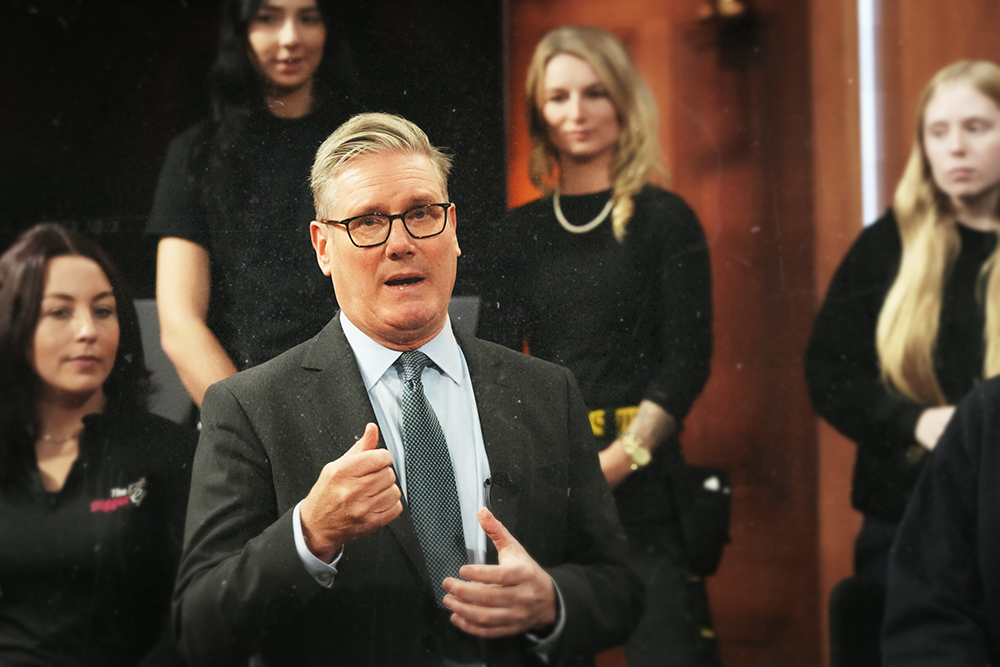Something happened at the Conservative party conference today which suggested it is too soon to write off the democratic world’s most successful party: there were three brilliant speeches in a row. Given that this political era is not known for its great orators, this was a most unusual and very welcome occurrence.
It is too soon to write off the democratic world’s most successful party
Of the four Conservative leadership contenders, only Tom Tugendhat – perhaps hampered by being first on and having to warm-up the audience – failed to truly connect beyond his enthusiastic gaggle of camp followers. His workmanlike address was perfectly competent but lacked a transcendent moment.
James Cleverly, Robert Jenrick and Kemi Badenoch all gave orations which reached that elevated level of fluency that professional sportspeople sometimes refer to as ‘being in the zone’: the moment when everything comes together.
Despite inspiring an audience of thousands in Birmingham, the more prosaic reality is that the trio were in fact pitching to a key group of 38 Tory MPs: the 16 who voted for Mel Stride in the last round plus Tugendhat’s 22. How this select band break between the three will determine which two of them will go before the whole membership for the final round.
Cleverly’s hit performance was undoubtedly the most unexpected. He found a way to show that his aptitude for projecting warmth should not merely be dismissed as mastery of ‘vibes’ but could actually lead to electoral recovery. Cleverly did this not by citing Margaret Thatcher as his political hero, but by choosing Ronald Reagan instead. He had a couple of clever oblique lines about his main competitors too. ‘Be more normal’ was surely a riposte to the ‘Be More Kemi’ T-shirts worn by Badenoch supporters, while ‘don’t pretend to be something we are not’ will be widely interpreted as a dig at Jenrick.
Sure, there was a hole where one might have expected a big political idea, but having a leader normal people found likeable worked wonders for the Tories in 2019.
Jenrick began stutteringly, expecting a big cheer for having grown up in Wolverhampton ‘just down the road’ from the Birmingham conference hall, but not getting one. He also dropped a blooper by appearing to suggest that 1974 was an epoch-making year because it had given the Tory party Margaret Thatcher as leader, when in fact she was not installed until well into 1975.
But once he got into the meat of his argument, it became compelling, promising nothing less than ‘a new Conservative party’ under his leadership. This new party would, he promised, implement five key changes: securing borders, taking a stand on the implementation of net zero, getting Britain building again, creating a small state that works and standing up for British culture and identity. All these missions were set out in some detail and together they seemed to capture the scale of the change the Tories need to make to win back millions of disillusioned erstwhile supporters.
The quality of the two previous speakers meant that Kemi Badenoch needed to deliver a humdinger. She duly delivered with her pledge to ‘rewire, reboot and reprogramme’ the British public realm. Badenoch was less specific than Jenrick when it came to policy prescriptions. But she may well have done enough to calm worries that too many establishment fixers had got their mitts on her and taken the radicalism out of her.
Badenoch skilfully set out her record of fearlessness in the face of all kinds of left-wing villainy and the hall loved it. She told them that she had fought for conservative values every day of the last parliament – possibly a dig at Jenrick’s Johnny-come-lately gut conservatism, that – and they lapped it up. Both Jenrick and Badenoch spoke of the disgrace of having a Batley schoolteacher still in hiding for daring to show a cartoon of Muhammad in a lesson on free speech.
Badenoch said she had fought for women’s rights to safe spaces and for the right of children to grow up in their own time, defeating the madness of militant trans when first Nicola Sturgeon fell and then Labour accepted her arguments. And she won a huge roar of support when she pledged to fight to champion and defend young people with conservative views who had been intimidated into silence on college campuses.
Had she been even five per cent underpowered then one would have assumed that all roads led to a Jenrick v Cleverly showdown. But she wasn’t. She’s back in the game and quite possibly the Tories are too.
Listen to Coffee House Shots:








Comments